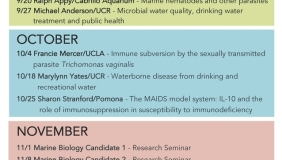Read the latest news and updates from the Biology department.
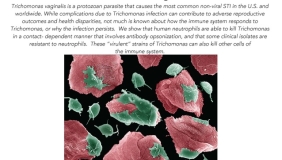
Trichomonas vaginalis is a protozoan parasite that causes the most common non-viral STI in the U.S. and worldwide. While complications due to Trichomonas infection can contribute to adverse reproductive outcomes and health disparities, not much is known about how the immune system responds to Trichomonas, or why the infection persists.
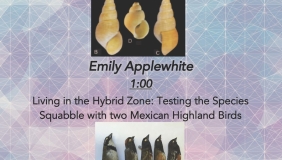
Heidi Aronson
12:30
The specific and exclusive microbiome of the deep-sea bone-eating snail, Rubyspira osteovora
Emily Applewhite
1:00
Living in the Hybrid Zone: Testing the Species Squabble with two Mexican Highland Birds
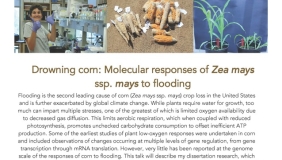
Flooding is the second leading cause of corn (Zea mays ssp. mays) crop loss in the United States and is further exacerbated by global climate change. While plants require water for growth, too much can impart multiple stresses, one of the greatest of which is limited oxygen availability due to decreased gas diffusion.

2016 BIOLOGY SENIOR COMPS PRESENTATIONS
Saturday, April 9th
NEURAL DEVELOPMENT
FOWLER 207
9:00-10:30
Rivi Sacks
Daniela Borquez
10:45-12:15
Anise Marshall
Emma White
1:00-2:00
Olivia Jenkins
Michaela Tsuha
2:45-4:3
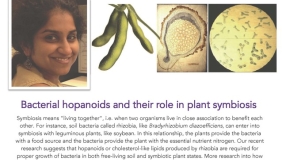
Symbiosis means "living together", i.e. when two organisms live in close association to benefit each other. For instance, soil bacteria called rhizobia, like Bradyrhizobium diazoefficiens, can enter into symbiosis with leguminous plants, like soybean.



